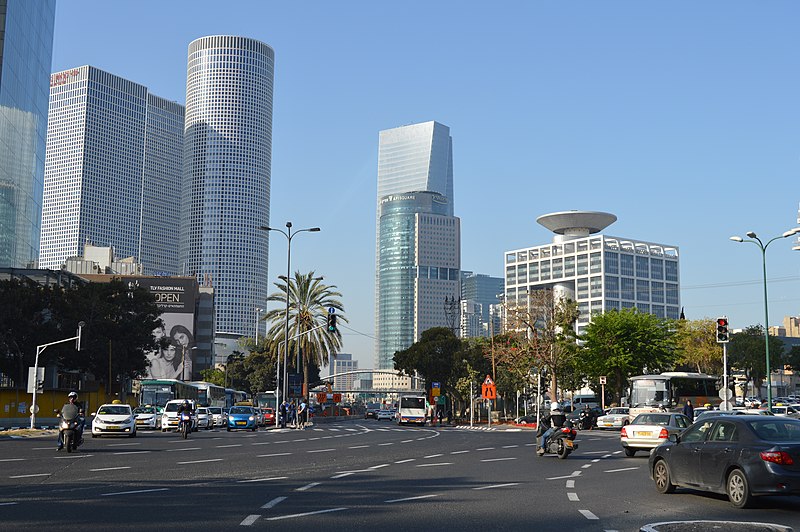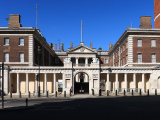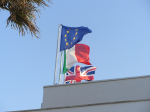
In a shocking turn of events, Israel finds itself on the brink of war after an audacious attack by the Palestinian militant group, Hamas, resulted in at least 150 casualties and over 1,100 injuries.
The assault marked one of the largest-scale operations launched by Hamas in recent years, thrusting the region into a perilous and unprecedented situation.
Early in the morning, Gaza-based gunmen infiltrated southern Israeli communities, taking advantage of heavy rocket fire as cover. This daring move led to the capture of both Israeli soldiers and civilians, some of whom were transported back to Gaza. In response, Israel retaliated with a relentless series of airstrikes on Gaza, resulting in 232 deaths and 1,600 injuries, according to medical sources.
Israeli Prime Minister Benjamin Netanyahu declared Israel to be "at war" and vowed that Hamas, the governing authority in Gaza, would face an unparalleled reckoning. Israel has mobilized tens of thousands of reservists, preparing for a possible ground incursion into Gaza.
This escalation marks one of the most serious confrontations in the Israel-Palestinian conflict in years. The audacious Hamas attack saw militants breaching the heavily fortified perimeter fence at dawn. Simultaneously, Gaza launched an intense rocket barrage, some of which reached as far as Tel Aviv and Jerusalem.
How the infiltrators managed to breach one of the world's most secure borders remains unclear. The Israeli military responded by conducting numerous airstrikes on Hamas targets in Gaza, including 17 military compounds. Additionally, Israel reportedly cut off Gaza's electricity supply, according to Israel's Energy Minister, Israel Katz.
Tragically, Israeli airstrikes also hit two hospitals in Gaza, causing the loss of lives, including a nurse and an ambulance driver, as reported by the medical aid group Medecins Sans Frontieres.
The rocket barrages from Gaza, the most significant Hamas attack on Israel in years, began on a significant day, coinciding with the Jewish Sabbath and the festival of Simchat Torah. As sirens blared across Israel, the Israel Defense Forces (IDF) announced that "terrorists" had infiltrated various Israeli locations.
Residents in towns close to Gaza found themselves trapped in their homes, as militants entered their communities. Videos from the town of Sderot, just one mile from Gaza, depicted heavily armed Palestinian militants engaging in firefights with Israeli forces.
Reports indicate that an unprecedented number of hostages, both military and civilian, were taken by Hamas. Some are believed to be held in small towns near the Gaza Strip, while others have been transported back into Gaza. Hamas claimed to have captured 53 "prisoners of war," including senior Israeli army officers, many of whom were allegedly held in tunnels—previous prime targets in Israeli-Palestinian conflicts.
The IDF acknowledged the abduction of "soldiers and civilians" and confirmed the loss of some soldiers' lives but denied reports of a top general being kidnapped. The IDF stated that it was engaged in combat with Hamas in 22 locations, and militants also entered Israel by sea near Zikim, on the coast just north of Gaza. There were reports of Palestinians driving Israeli military vehicles in Gaza as well.
The Israeli health ministry confirmed that 150 people were killed in Israel, and 1,104 others were injured. Rocket barrages continued throughout the morning, with thousands of projectiles launched towards Israel. In the evening, another wave of rocket strikes targeted central cities like Tel Aviv, Bat Yam, and Giv'atayim. Streets in Tel Aviv were locked down and deserted, creating an atmosphere of fear and uncertainty among residents.
The situation was described by Gideon Levy, an English author and journalist, as one filled with "surprise, shock, and fear." Tragically, Ofir Liebstein, the leader of a regional council in southern Israel, lost his life in an exchange of fire while defending his community.
Prime Minister Netanyahu emphasized the gravity of the situation, declaring it a "war" rather than an operation or escalation. He ordered the evacuation of communities infiltrated by terrorists while also authorizing a substantial mobilization of reserves and a retaliatory response of unprecedented scale.
Hamas's senior military commander, Mohammed Deif, heralded the attack as the "greatest battle to end the last occupation on Earth." He called upon Palestinians worldwide to join the fight. Hamas's leader-in-exile, Ismail Haniyeh, later suggested that Palestinian factions aimed to expand the violence to the West Bank and Jerusalem.
Hamas spokesman Ghazi Hamad revealed that the group received direct support from Iran for the attack. Iran's supreme leader had previously stated that the country would support Palestinian fighters until the liberation of Palestine and Jerusalem. Palestinian President Mahmoud Abbas, a political rival of Hamas, asserted the Palestinian people's right to defend themselves against "settler terror" and occupation forces.
An extensive investigation has been launched to determine how Israeli intelligence failed to anticipate the well-coordinated Hamas attack, as confirmed by Israeli government officials speaking to the BBC.
The international community has responded with strong condemnation of the Hamas attacks. UK Foreign Secretary James Cleverly denounced the "horrific attacks by Hamas on Israeli civilians," while Nato condemned the "terrorist attacks" against Israel. The UN Secretary-General expressed his appallment at reports of civilians being attacked and abducted from their homes. European Commission President Ursula von der Leyen labeled it "terrorism in its most despicable form," and the United States unequivocally condemned the "unprovoked attacks," emphasizing that there is no justification for terrorism. Qatar's foreign ministry held Israel solely responsible for the escalating violence. Photo by Eurovaran, Wikimedia commons.









































